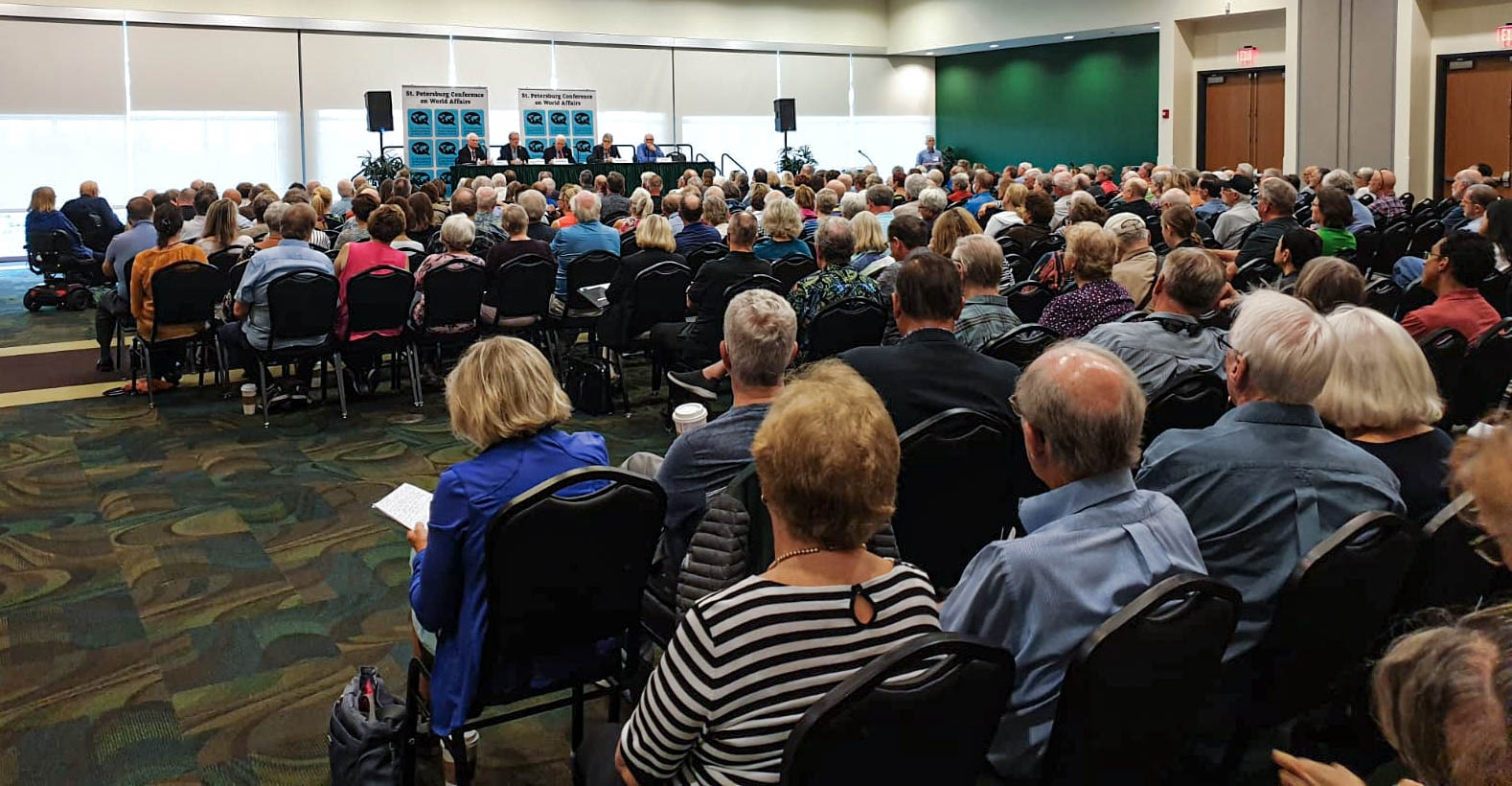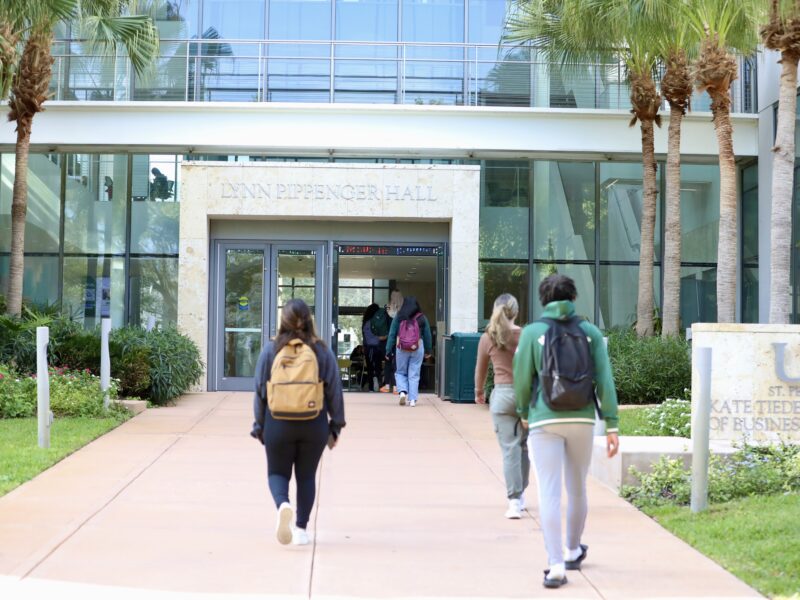A full crowd at the St. Petersburg Conference of World Affairs watched Ellen Prager, Tom Frazer, Craig Pittman and Dave Jones speak about climate change.
Courtesy of Denis Thuin
By Lauren Wood
Climate change will always be a “hot topic” of discussion, but the global impacts of rising sea level and loss of land-based ice are no joke.
For example, the Greenland Ice Sheet, which extends about 656,000 square miles — three times the size of Texas — is losing nearly 267 billion metric tons of ice per year. This means the average sea level will continue to rise at a rate of about 0.7 millimeters per year, according to the National Oceanic and Atmospheric Administration’s annual Arctic Report Card.
“This pace of warming is not natural,” said Ellen Prager, a renowned marine scientist, environmental enthusiast, and a consultant for Disney’s “Moana.”
On Feb.19, during a panel discussion at the eighth annual St. Petersburg Conference on World Affairs, Prager took the stage with Tom Frazer, Craig Pittman and Dave Jones to discuss the many unknowns and uncertainties of climate change.
Beginning with a personal anecdote, Frazer told the audience about his previous excursions to Antarctica.
In 1991, he traveled to the Antarctic peninsula to study glacier retreat and the impacts of shrinking sea ice on the animals and organisms that lived there. To do this, Frazer and a handful of Bulgarian researchers staked out a massive glacier, using rulers to measure the amount of retreat in millimeters.
Later, in 2004, Frazer returned to the Antarctic peninsula and spoke to the Bulgarian researchers again. He wanted to know how much the glacier had shrunk since his departure.
However, when they took him to the sight where he last saw the glacier more than a decade ago, “it was gone,” Frazer said.
So, what does sea-level rising mean for Floridians in low-lying areas?
“It is kind of like a slowly-moving storm surge,” said Pittman. “You must know your evacuation plan and take action when necessary.”
Pittman, the environment, growth and development reporter for the Tampa Bay Times, has written about climate change since 1998. He has won numerous state and national awards for his articles related to global warming.
Jones, a former broadcast meteorologist, said there is about five to seven percent more moisture in the air than there was 30 years ago.
“The more moisture there is, the harder it will rain,” Jones said. “The harder it will rain, the less our infrastructure will be able to handle.”
Toward the end of the discussion, the panelists held a “rapid-fire” round of questions. One skeptical audience member asked: “If you have a glass of ice water, the ice will melt but will not overflow the glass or raise the water level. How do you explain that?”
Prager was quick to answer.
“That is true; it will not rise at all. However, if you add ice to a glass of water, it will rise,” she said. Prager continued to explain that land-based ice and snow differs from sea ice because it is a large mass that wasn’t in the water before.
“The question isn’t ‘What should we do to combat climate change?’” Pittman said. “We know what to do about it; it’s just a matter of whether or not we have the will to do it.”
Many of the crowd members applauded the Times writer for his call to action. Some even wrote it down to remember in 40 minutes when they filed into the cafeteria for their morning coffee.
Coffee that was poured into numerous disposable cups with single-use creamer and sugar packages.



